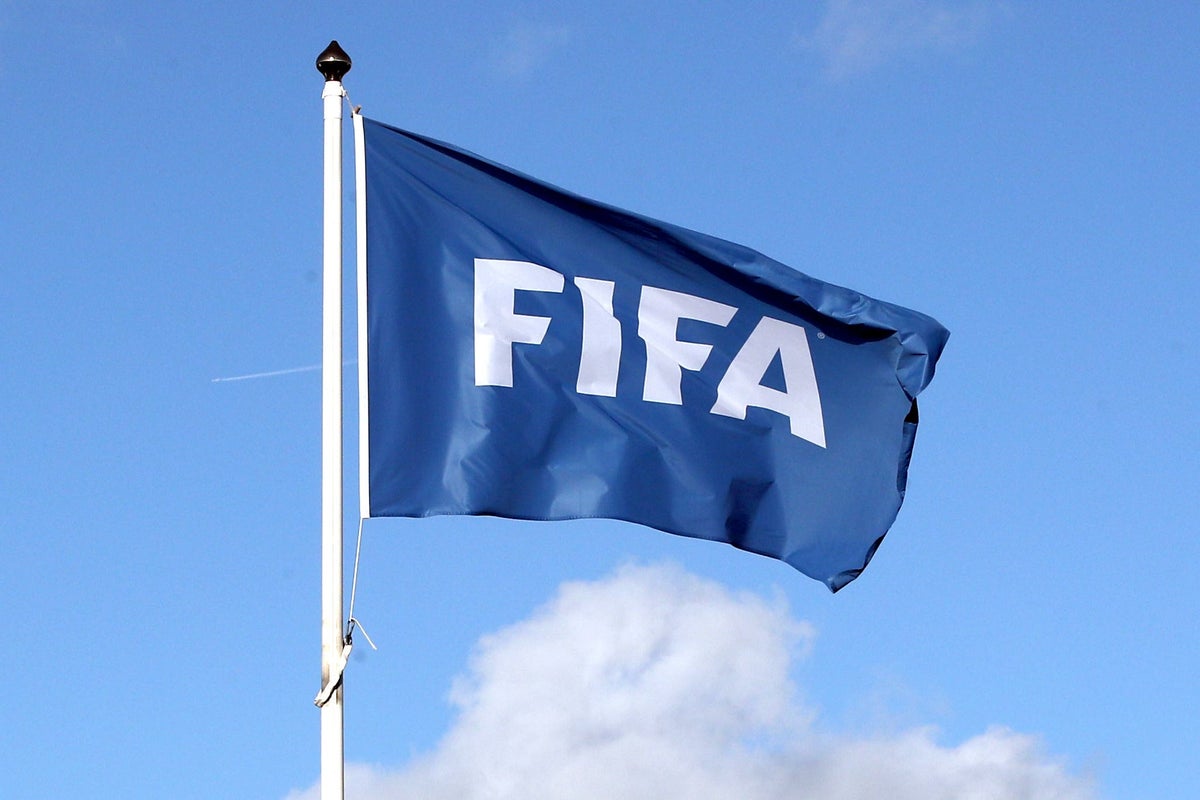
Football Australia is working with FIFA to create an environment CEO James Johnson hopes will enable players to speak “freely” on issues including LGBTQ+ rights at this summer’s Women’s World Cup in Australia and New Zealand.
Qatar was a controversial choice to host the men’s tournament in part due the country’s stance on same-sex relationships, which are directly criminalised under the laws of the Gulf state.
While teams at that competition, including England, initially pledged to wear rainbow “OneLove” armbands, the gesture was axed at the 11th hour after FIFA indicated there could sporting sanctions as a result.
Women’s football has historically been perceived as a much more welcoming environment for the LGBTQ+ community, with many players themselves out and advocating for equality, something Johnson agreed was at the forefront of the host country’s priorities.
“Football Australia (wants) to use the tournament to transform,” Johnson told the PA news agency. “We’ve been doing that in the lead-up to the Women’s World Cup, you’ve seen a world-class equal pay deal, you’ve seen governance changes around our game where there’s equal representation on boards, both men’s and women’s.
“The other part, the competition part, is we want players to be able to express themselves freely, so we’re working with FIFA to put some mechanisms in place and that the players are able to do that. Our own team are very socially focused, they’re very sensitive to issues, so we want to provide an environment that allows them to speak their minds.
“That’s important – not only to Football Australia, but Australia as a culture.”
Australia is one of 32 countries where same-sex marriage is legal after the law was passed in December 2017.
England forward Beth Mead, who is in a relationship with Arsenal team-mate and Netherlands striker Vivianne Miedema, was among the high-profile players who spoke out against the choice of host for the men’s showpiece.
Australian men’s national team the Socceroos released a video ahead of the tournament in Qatar outlining their concerns with the country’s human rights record, while their women’s counterparts the Matildas wore rainbow pride-themed numbers during their Cup of Nations match against Spain earlier this week.
Johnson is not yet certain what will or will not be allowed when the World Cup begins on July 20 – that decision is ultimately up to tournament organisers FIFA – but he reiterated: “These are the sorts of issues that are important for our players. Ultimately FIFA is the competition organiser, so they’ll need to make a decision about this.
“The stance is we’ve got to allow our players in our country to be able to speak about issues. Now, it’s going to be about a degree and some specificity, but we think that will be important not only to our players but other players across the world.”
Johnson’s organisation claimed they were blindsided by recent rumours that Visit Saudi was set to sign on as a World Cup sponsor. While still unconfirmed, the alleged deal drew widespread criticism, with many pointing to Saudi Arabia’s record on women’s rights – the country is ranked 127th out of 146 countries on the World Economic Forum’s most recent gender gap index rankings.
Football Australia and New Zealand Football wrote to FIFA to express their concerns, and PA understands the global governing body has sent a reply indicating they were prepared to engage in an open dialogue, something Johnson hopes will begin in the next few weeks.
On Monday, it was announced that both Australia’s men’s and women’s sides will face their English counterparts in 2023. The Lionesses will welcome the Matildas to Brentford for a pre-World Cup friendly on April 11, while Gareth Southgate’s side will take on the Socceroos at Wembley on October 13.
Johnson believes Australia’s unique geography, combined with targeted scheduling to maximise global broadcast windows, will enable two billion viewers to tune into the tournament – double the audience of the previous iteration in France.
The choice to meet England was just as deliberate, a move to ensure Australia’s national teams go up against the world’s best sides – or, in the Lionesses’ case, one that could depart Johnson’s country with the world’s biggest prize.
“They are absolutely a favourite. I think they’ll fit in very comfortably. I’m sure they’ll be everyone’s favourite,” said the Australian, before adding: “Or second favourite team, I should say.”







